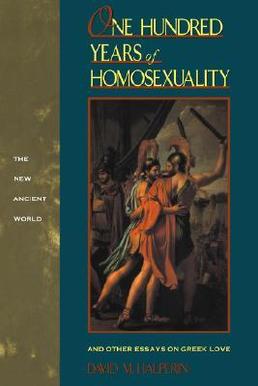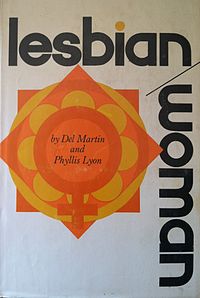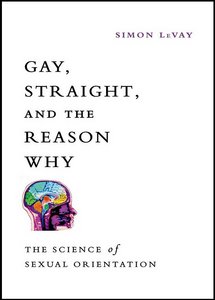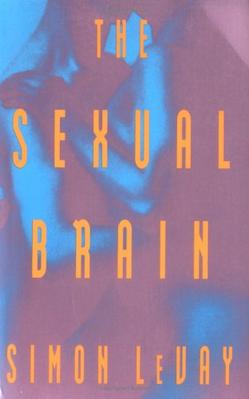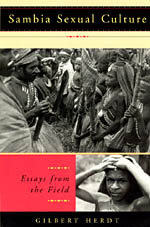Scientific and academic journals
Gay Science received positive reviews from the psychiatrist Susan Bradley in The New England Journal of Medicine , the philosopher David Hull in The Quarterly Review of Biology , the philosopher Sandra Harding in the Journal of Homosexuality , Mark Chekola in Bioethics , and the philosopher Michael Ruse in the British Journal for the Philosophy of Science . The book received mixed reviews from the philosopher Udo Schüklenk in JAMA , Daniel Wolfe in Culture, Health & Sexuality , the sex researcher James D. Weinrich in Human Biology , and the feminist studies scholar Martha McCaughey in Science, Technology, & Human Values .
Bradley described Gay Science as a "wonderful book". She found Murphy's arguments convincing, but suggested that they might not convince gay or lesbian readers. She described him as "courageous" for arguing that the possibility that future treatments for homoeroticism might result in a reduction in the number of gay people is not a serious problem. She concluded that although Murphy's arguments were sometimes repetitive and tedious, his points are well made and valuable. Hull praised Murphy's discussion of the moral and social issues raised by scientific research on human sexuality. He agreed with Murphy that if a method to select a child's future sexual orientation were developed it would result in a reduction of the number of gay people. Harding described the book as, "a careful, illuminating, balanced, and thought-provoking analysis not only of the ethics of sexual orientation research, but also of its science and politics." She credited Murphy with providing a, "complex, empirically sound, and carefully modest constructionist account of sexual orientation". She found Murphy's discussion of the ethical issues involved in sexual orientation therapies, and the use of sexual orientation tests, thoughtful and careful.
Chekola described the book as "an admirable exploration of issues related to research on sexual orientation and possible applications of such research". He credited Murphy with being the first person to write a comprehensive work examining these issues, calling him "extremely thorough and exhaustive". He also credited Murphy with carefully discussing the limitations of research by LeVay, Bailey, Hamer, Hall, Kimura, and Nicolosi. He wrote that while Murphy's speculation that science might develop means of preventing or altering homosexuality, and that the number of gay people would be diminished as a result, might seem "odd and chilling", it was "an interesting exercise in looking at the implications scientific knowledge might have for people's choices that could result in a minority's becoming smaller, a concern not limited to gay and lesbian people." However, he also wrote that Murphy's thoroughness would probably limit his audience to academics, and that "Many undergraduates would likely get lost at various points in the book."
Ruse credited Murphy with having "a deep and sensitive knowledge of the appropriate areas of science", being "able to write clearly and distinctly about difficult issues, so that one can follow without any trouble the sorts of points that he wants to make", and providing good discussions of the work of researchers such as LeVay. He wrote that the book made his own work Homosexuality: A Philosophical Inquiry (1988) outdated. He agreed with Murphy's defense of inquiry into the origins of sexual orientation. He found Murphy's discussion of attempts by parents to control the sexual orientation of their children interesting, but disputed Murphy's conclusion that parents would have the right to engage in such attempts, arguing that rather than granting them that right it would be better "to change societal attitudes about homosexuality so that people do not show prejudice against homosexuals." He found Murphy's discussion of laws about homosexuality interesting, but questioned whether Murphy provided "anything which is deeply grounded in a well thought-out philosophy of law". He also questioned whether Murphy was right to devote attention to the issue of whether it is possible or desirable to change a person's sexual orientation and noted that, "Murphy seems to have virtually no time or interest in Freud's work, even though a mere twenty years ago the Freudian etiological analysis of homosexuality was considered really significant." He also observed that Murphy had little or no interest in discussing social constructionist views influenced by Foucault.
Schüklenk considered the book similar to Hamer's The Science of Desire (1994), as well as to Queer Science, though she found it a superior work. She praised Murphy's use of thought experiments and complimented his overview of scientific accounts of sexual orientation. She also agreed with him that a strong case can be made against biological research on sexual orientation because of its potential misuses. However, she criticized his discussion of the use of methods that might potentially predict a child's future sexual orientation, arguing that he did not take cultural differences between countries into account. She criticized Murphy for devoting insufficient attention to issues affecting the welfare of gay people outside the United States. However, she considered him correct to maintain that a test for a genetically-based homosexuality would not necessarily be used in ways that would harm gay people, and agreed with him that biological findings on homosexuality has no relevance to the issue of the moral status of homosexual behavior.
Wolfe described the book as "invaluable for students of gay history, medicine and their intersections", and praised its, "Careful summary and careful citations". He complimented Ruse for his discussions of the research of Bieber, Socarides, Hamer, and LeVay, his account of conversion therapy, and his philosophical discussion of the ethical questions involved in scientific research on sexual orientation, including the possible development of methods to prevent or alter homosexuality. He also credited Murphy with exposing the oversimplification of research such as that of LeVay by the media. Though noting that not all readers would find Murphy's ethical discussions interesting, he agreed with Murphy's criticisms of Finnis's views, while finding them obvious. He criticized Murphy for devoting too much space to discussing anti-gay views and arguments.
Weinrich credited Murphy with providing a "reasonably up-to-date review" of scientific accounts of sexual orientation, and endorsed Murphy's criticisms of Finnis, calling them "complete and devastating". He also praised Murphy for helpfully addressing "questions about the supposed naturalness or unnaturalness of homosexual desire and behavior" and for his discussion of "the consequences for society of his lines of thought." However, he described much of Murphy's discussion of the question of whether research into sexual orientation should be undertaken at all as boring, and wrote that most of Murphy's conclusions ranged "from self-evident to uninteresting." He also accused Murphy of being naive in his discussion of how institutions such as the Catholic Church and the American military might respond to the development of scientific methods of preventing or detecting homosexuality, and argued that he was overly critical of sociobiological explanations of homosexuality, and sometimes showed a "less than perfect" understanding of biology.
McCaughey credited Murphy with providing interesting discussions of the therapeutic treatment of homosexuality, parental control of sexual orientation in children, testing for sexual orientation, and the limits of the use of the concept of nature in moral and legal arguments. However, she criticized him for ignoring "the arguments and research suggesting that the divide between homo and hetero and its presumed natural origin accounts for much bigotry, discrimination, and violence against gay people." She also noted that he ignored the fact that "most of the 1990s sexual-orientation research centers on men" and that he did not challenge the "fundamental sexism of the idea that gay men are similar to women".







